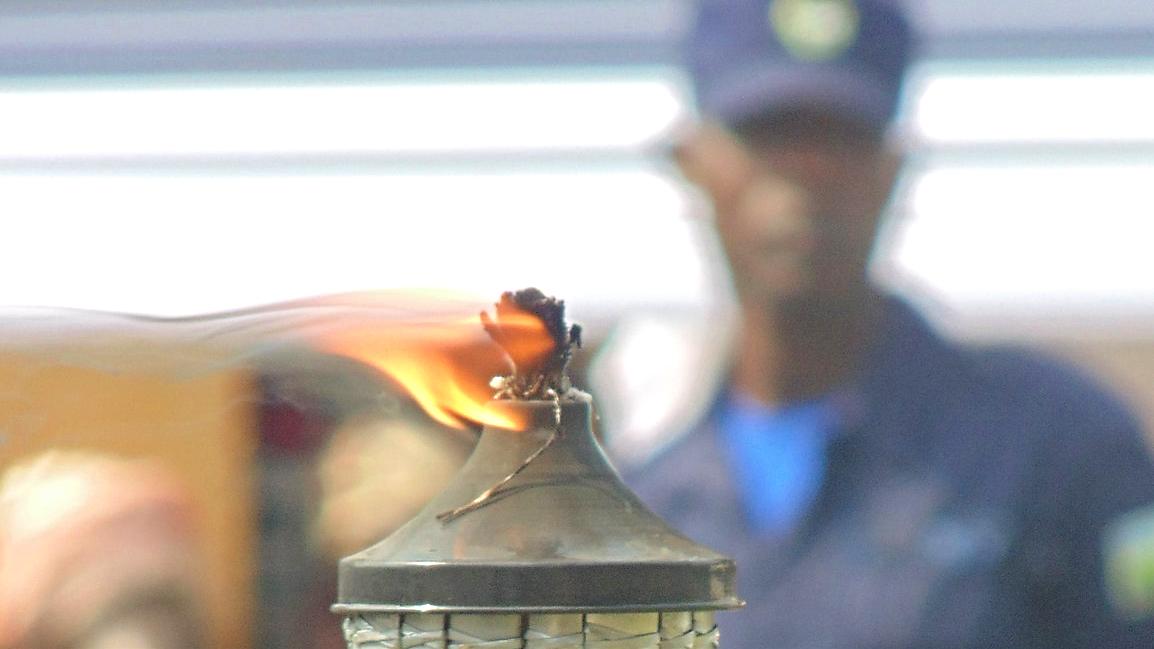How do today’s authoritarian rulers project national-level power into the lives of ordinary citizens? CPAID Fellow Rebecca Tapscott highlights the importance of ‘militarised masculinities’ and explains how their performance enacts a foundational tension between discipline and impunity that generates political power.
This post is an output from LSE’s Centre for Public Authority and International Development at the Firoz Lalji Centre for Africa.
In recent decades, the world has seen the rise of a new kind of authoritarian ruler. Unlike despots of the past, these strongmen rule in the context of democratic institutions like elections, due process and an independent press. For example, rather than control the media through direct censorship, these regimes might adopt high licensing fees that ensure only those with access to government patronage can own media houses.
This style of rule poses a new challenge to authoritarian incumbents: democratic institutions provide repeated opportunities – however limited – for citizens to challenge the ruler and the regime. In this context, the question of how rulers control society is increasingly pronounced. Simply put, how does this brand of authoritarian ruler exercise social control and discourage ordinary people from using democratic institutions to demand accountability?
In a new article published in International Affairs, I focus on what I term the ‘paradox of restraint’, in which rulers use legally compliant reforms to unshackle their own arbitrary power. I show how this paradox is fundamentally gendered: rulers’ performances of militarised masculinity are key to projecting national-level power into ordinary people’s daily lives.
Scholars have long recognised gender as multiple and complex, and at times overlapping and contradictory. The foundational role of the military in the identity of the nation-state has made militarism and militarised masculinities an important subfield of this literature, which calls on scholars to expand studies of militarisation from geopolitics to the everyday, ‘to unmask power as it emerges and circulates at the level of micropolitics shaping borders, boundaries, subjects and spheres’.
The article starts from the observation that militarised masculinities are characterised by a paradox between disciplined order and violent impunity. When rulers adopt militarised masculinities, they enact this paradox, showing themselves to be at once unaccountably violent and also practically restrained. For instance, in Uganda, the ruling regime often frames itself as a bulwark against chaos and civil war. To prevent such instability, the regime is then justified in unleashing unaccountable and excessive force. Because these performances of militarised masculinities are not just abstract but also embodied (for example, by soldiers), citizens encounter them as such. This means that citizens reorient their own gendered identities in both public and private life around the gendered authority of the ruler and the regime.
This reasoning draws on feminist international relations, employing grounded qualitative research to illustrate these dynamics. It focuses on an in-depth case study of a local dispute between soldiers and civilians in Museveni’s Uganda to trace how gendered local encounters facilitate the transmission of national-level authoritarian power into the lives of ordinary people.
The article offers two key contributions. First, it recasts the conceptual utility of militarised masculinities, which is a concept that harbours contradictory elements. On the one hand, militarised masculinities are characterised by unaccountable violence, impunity and the will to kill. On the other hand, they also emphasise disciplined order, compliance and collective action. Many scholars seek to reconcile these tensions – for instance in a ‘tough and tender’ soldier or ‘nanny terrorist’ – that blends these opposing characteristics to create a hybrid gendered performance. In contrast, I focus on how militarised masculinities sustain these seemingly contradictory elements, producing a tension that gives them particular political potency.
Second, the article shows how performances of miltiarised masculinities translate national-level power to the grassroots. By enacting the paradox of restraint, militarised masculinities simultaneously emphasise the regime’s capacity for capricious and unaccountable violence and the continued relevance of the rule of law. Projecting this contradiction through gendered performances magnifies the ambiguities of modern authoritarianism and diffuses them at a local level. In turn, this helps to foster the impression that arbitrary violence enacted by state authorities is under the command of the ruler, such that an individual authority’s capricious or arbitrary decisions can reinforce rather than undermine the authority of the regime. Projecting the paradox of restraint through gendered performances further contributes to a public perception that volatile and potentially overwhelming strength is necessary to produce orderly rule over a chaotic society.
A degree of responsibility for the regime’s arbitrary violence is thus internalised by a policed population. This helps explain how today’s authoritarian rulers project and sustain power, even as they struggle to balance elite demands and societal discontent within an institutional setting that allows both to air their grievances.
Read the full article in International Affairs.
Photo: U.S. Army Sgt. Darrell Wheat shakes hands with Ugandan troops in Entebbe, Uganda. Photos by Rick Scavetta, U.S. Army Africa. Licensed under creative commons (CC BY 2.0).






Greetings, I really like this article and others you have written. I find many resonances with what is happening in Ethiopia and the use of rape and SBV to assert a ‘new order’ and ‘punishment’ by the Prime Minister’s so called ‘law and order’ response to the TPLF. Here whilst the TPLF leadership hide and marshall their response in the mountains, the people of Tigray are being punished; the most brutal ‘performative’ aspects of this punishment being enacted on the bodies of its women and children . Ethiopia is a very patriarchal society and has one of the highest rates of domestic and intimate violence. it also has a long history of military (formal and informal armies and militias”) and a militarized tradition wrapped into its official narrative of exceptionalism and patriotism over the centuries, buttressed by an aggressive patriarchal religious tradition of the ancient Orthodox Church. I am wrestling with how to ‘read’ the current regime and its ‘masculinized militarism’ performed by the PM who comes from the former regime’s own military (trained, ironically, also by UK gov. Security Sector reform fundings through the early 2000s). I am wrestling with what this will eventually mean for all Ethiopian women and their future calls for rights and participation in a ‘new democracy’. post crisis, post conflict and post elections. (if they ever take place) Right now all are ‘silenced’ to say anything against the tragedies of what is happening in to women in Tigray. Expressions of ‘concern’ are read as anti Ethiopian/ anti government. According to the PM himself ‘rape was sad but our soldiers were killed by TPLF bullets” so the violations go on, the NGOs will respond and SBV will just be one more ‘technical/health/reproductive’ issue that will be dealt with and the political and long term consequences pushed aside……….anyway thank you, I will continue wrestling…